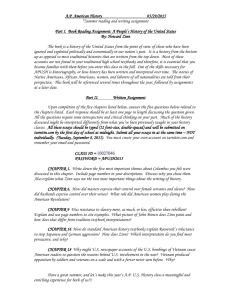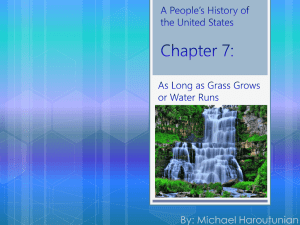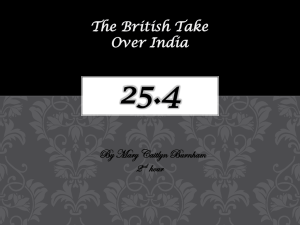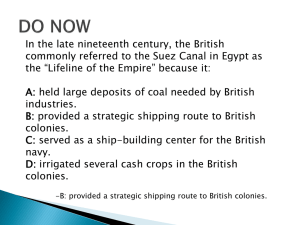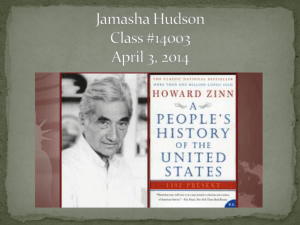ZINN CHAPTER 7
advertisement
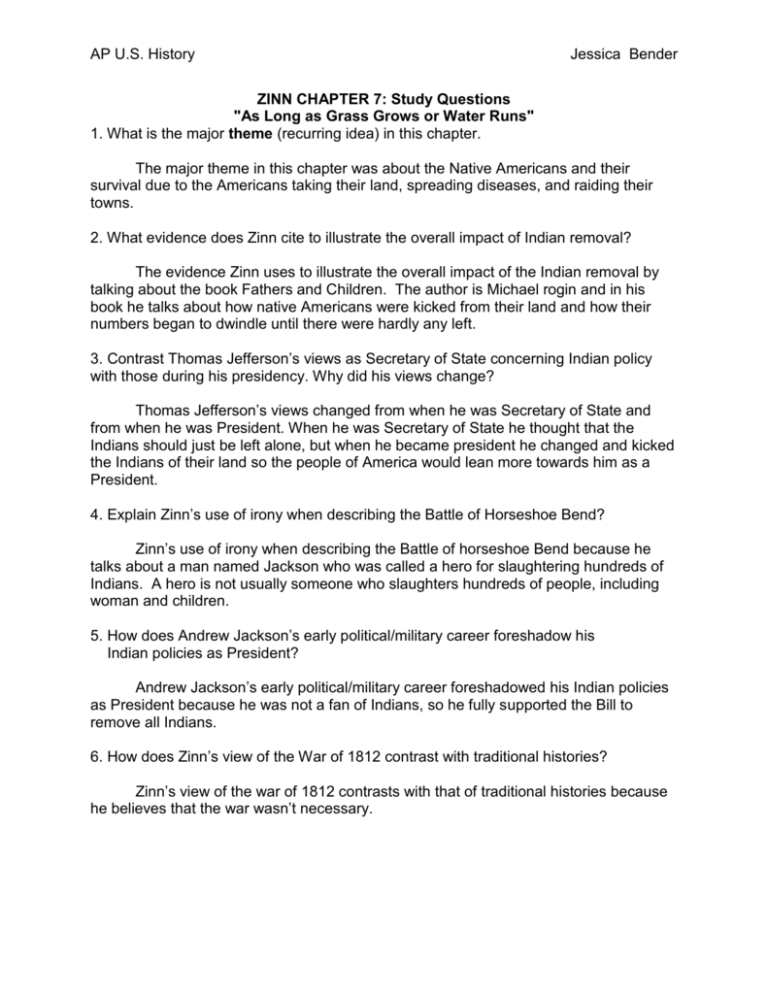
AP U.S. History Jessica Bender ZINN CHAPTER 7: Study Questions "As Long as Grass Grows or Water Runs" 1. What is the major theme (recurring idea) in this chapter. The major theme in this chapter was about the Native Americans and their survival due to the Americans taking their land, spreading diseases, and raiding their towns. 2. What evidence does Zinn cite to illustrate the overall impact of Indian removal? The evidence Zinn uses to illustrate the overall impact of the Indian removal by talking about the book Fathers and Children. The author is Michael rogin and in his book he talks about how native Americans were kicked from their land and how their numbers began to dwindle until there were hardly any left. 3. Contrast Thomas Jefferson’s views as Secretary of State concerning Indian policy with those during his presidency. Why did his views change? Thomas Jefferson’s views changed from when he was Secretary of State and from when he was President. When he was Secretary of State he thought that the Indians should just be left alone, but when he became president he changed and kicked the Indians of their land so the people of America would lean more towards him as a President. 4. Explain Zinn’s use of irony when describing the Battle of Horseshoe Bend? Zinn’s use of irony when describing the Battle of horseshoe Bend because he talks about a man named Jackson who was called a hero for slaughtering hundreds of Indians. A hero is not usually someone who slaughters hundreds of people, including woman and children. 5. How does Andrew Jackson’s early political/military career foreshadow his Indian policies as President? Andrew Jackson’s early political/military career foreshadowed his Indian policies as President because he was not a fan of Indians, so he fully supported the Bill to remove all Indians. 6. How does Zinn’s view of the War of 1812 contrast with traditional histories? Zinn’s view of the war of 1812 contrasts with that of traditional histories because he believes that the war wasn’t necessary. AP U.S. History Jessica Bender 7. Create a basic outline of Jackson’s Indian-related activities and their significance prior to his presidency (treaties, land speculation, etc.) Jackson’s Indian-related activities and their significance to his presidency was that because he had fought against the Indians and he didn’t favor them, this helped him get elected. 8. Explain Zinn’s view of Arthur Schlesinger’s The Age of Jackson and Marvin Meyers’ The Jacksonian Persuasion. Zinn’s view of Arthur Schlesinger’s The Age of Jackson and Marvin Meyers’ The Jackson persuasion is that the books concentrate more on his political and economical accounts, not on his years battling the Indians. Both books make Jackson look like the good guy, they don’t talk about him owning slaves and other heinous truths about him. 9. Describe evidence Zinn utilizes to assess the views of Lewis Cass vis-à-vis Native American policy. Evidence that Zinn utilizes to assess the views of Lewis Cass and the Native American Policy was that a reporter wrote a piece on how Indians needed their own rights since they were in America first. Cass thought that Indians shouldn’t be forced to do what they don’t want to do, which meant not leaving America or being pushed off of their land. 10. Create a table illustrating the fate of major Southeastern Indian tribes. The American troops had forced a major amount of southeastern Indian tribes to leave their land where they had been for generations and live somewhere else. Some Indian tribes also moved without the aid of the army. 11. To what extent did the Cherokee nation change its culture in order to survive within the U.S? The Cherokee nation changed its culture in order to survive the U.S. so the new society would accept them. So society would accept them they began to own slaves and adopted Christianity as their religion. 12. For what purpose does Zinn juxtapose the Nullification Controversy of 1832 and the enforcement of Worcester v. Georgia? Zinn juxtapose the nullification Controversy of 1832 and the enforcement of Worcester v. Georgia because both were written toshow that Americans should not bother the Indians. AP U.S. History Jessica Bender 13. Explain the significance of the phrase: "As long as grass grows or water runs." The significance of the phrase “As long as grass grows or water runs” was that Jackson had said this to the Indians. This meant that the Indians could have their land and that no settlers would steal it from them. But Jackson had lied to the Indians because there land was still taken.
